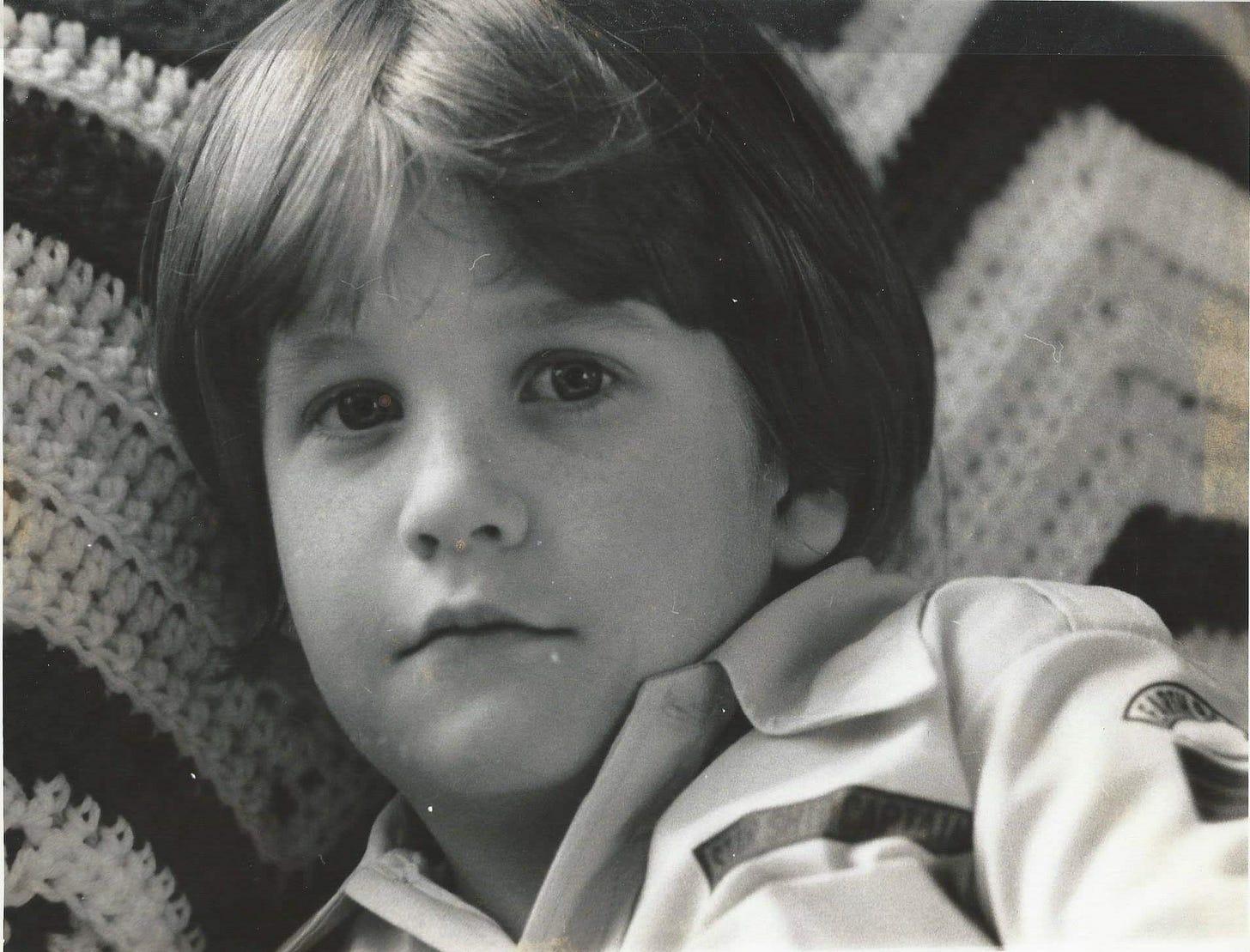There’s a question that echoes in the quiet chambers of many minds: Does my voice truly matter? This is an intensely deep and personal question, especially as I begin this writing endeavor. In a world clamoring for attention, where declarations often drown out discourse, it's easy to feel like your words are nothing more than a whisper dissipating into an indifferent void. My Substack, The Social Justice Berserker, will serve as the platform for my dedication to amplifying the voices of the marginalized and confronting injustice. This question, "Does my voice matter," is not just theoretical; it's profoundly personal, forming the very bedrock of my commitment.
The Genesis of a Silenced Voice
From my earliest memories, the answer to that question felt like a resounding "no!". "Be quiet!" "Shut up!" and “Go away!” were common refrains throughout my childhood, spoken by my parents and their partners alike. This constant silencing shaped my formative years, embedding a deep-seated belief that my thoughts and feelings were unwelcome, or at best, inconvenient.

As a result, I often found solace and escape buried in books. Within those pages, I discovered characters who could express themselves with such verve and vigor. How I envied these fictional beings, able to articulate feelings, plan calls to action, and stand for what was right! It's no wonder I’ve always been far more comfortable with the written word. When a child is consistently discouraged from using their voice, how can they ever learn to stand strong when it's truly needed? The damage manifested well into my adulthood; even today, I find it significantly easier to convey the deepest parts of myself through writing. When I try to verbalize my thoughts and feelings, it often feels like I have a mouth full of marbles, and there’s a serious cross-wiring between that mouth and my brain.
The Paradox of the Whisper: Finding Strength in Observation
Yet, the suppression of my verbal voice paradoxically cultivated other, crucial strengths. I've never been one to "hold court," to command the center of attention. I shirk from that, finding it uncomfortable even among close friends and peers. However, what I did learn was how to listen with intent. To truly hear not only what is said, but also what is not said.
This skill, a quiet resolve learned from the necessity of keen observation and empathetic understanding born from an upbringing where verbal expression was constrained, became invaluable. I can usually interject a bit of humor or a spark of insight into a conversation, either keeping the flow going or altering its course towards overlooked potential. These aren't grand pronouncements, but subtle, strategic contributions that carry weight precisely because they are carefully considered. My voice, even when a whisper, learned to be impactful through precision and timing.
Finding Voice in Purpose: Fatherhood, Guardianship, and Allyship
Despite the lingering challenges with verbal expression, there are specific roles where my voice consistently emerges clear and strong: in fatherhood, as a guardian, or as an ally in support of someone experiencing hardship or trauma. In these moments, the marbles disappear, and the cross-wiring straightens out.
It doesn’t mean I always say the perfect thing. However, I am consistently able to say the IMPORTANT things: words of love, genuine support, and profound understanding. The inherent responsibility of protecting and guiding my children, or standing with someone in their most vulnerable moments, overrides my personal inhibitions. In these roles, empathy becomes an amplifier, allowing my authentic voice to cut through.
The Imperative of Acknowledgment: Why Their Voices Matter to Me
This brings me to why the voices of marginalized groups matter so deeply to me. I cannot deny their experiences. I need to acknowledge their struggles. I have to listen to their stories. For so many times in my young life, their stories—the narratives I found through my reading adventures—are what got me through my days.
These were voices, often from fictional characters, who knew what it was like to be unheard, to fight against unseen forces, to search for their own agency. They showed me that even a whisper, when deeply felt and authentically expressed, holds immense power. My own journey, from being silenced to finding my voice through the written word and in the service of others, compels me to champion those who are still struggling to be heard. Their experiences resonate with my own, creating an unbreakable bond of understanding and shared humanity.
The Resonance of a Single Voice
So, does your voice matter? Absolutely. While it may feel like a whisper in a vast void, that whisper carries immense power, especially when it is authentic, empathetic, and spoken from a place of truth. It might not always be loud, but its resonance can inspire, affirm, and ignite change.
Your voice, like mine, has an inherent right to be heard. We must cultivate the courage to express it, even if quietly. And just as importantly, we must actively lean in and listen to the whispers of others, particularly those who have been systematically silenced. For in that collective act of speaking and listening, whispers can indeed coalesce into a powerful, undeniable roar for a more just world.





I loved reading your article. I still fondly remember our conversation. Thank you for sharing those moments from your childhood with me!
You are heard more than you think!